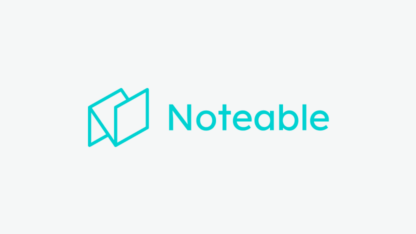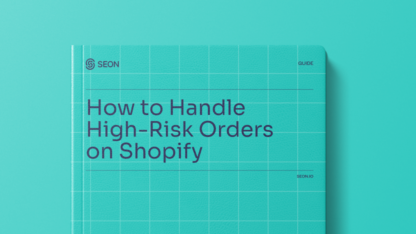List of Top eCommerce Fraud Prevention Software
- SEON: Reduce Chargebacks and False Positives
- Signifyd: Revenue, Abuse, and Payments Protection
- Kount: 13 Years’ Worth of Business Data
- Sift: Digital Trust, Safety, and Chargeback Prevention
- Cybersource: Single Platform Commerce Solution
- Arkose Labs: Script and Bot Attack Mitigation Experts
- Covery: Fraud Fighting with Blockchain Tech
- Vesta: CNP Experts with Telecoms Insight
- Nethone: Data Science-Powered Prevention
- Ekata – Leveraging Mastercard’s Transaction Data
What Is eCommerce Fraud Prevention Software?
Ecommerce fraud prevention software allows online stores to automatically accept or decline payments to mitigate the risk of chargebacks and other types of fraud.
The software runs in the background as customers visit the eshop, browse products, create accounts, log in, make purchases, enter their details, and so on. There are different touchpoints, and it’s good to keep in mind that not all available fraud prevention software covers every touchpoint. However, to be better protected, you will want to address as many as possible and, importantly, do so with minimal disruption to your customers’ shopping journeys.
The 10 Best eCommerce Fraud Prevention Software
SEON
Lower Chargebacks and False Positives
From transaction fraud to return fraud and even triangulation fraud, there’s little you can’t control with SEON. The key? Leveraging the power of alternative data and dynamic friction to reduce fraud rates without slowing your customers’ purchase journey.
A summary of what SEON offers:
- Solution: SEON offers a comprehensive solution for fraud and money laundering prevention, covering the entire customer journey. Its custom-built technology provides a seamless, integrated experience, boosting collaboration and efficiency among fraud and compliance teams while saving time, resources, and avoiding third-party fees.
- Extensive real-time data: SEON offers real-time insights from 90+ digital sources, device intelligence, IP and BIN lookups, card checks, and anti-money laundering data. It consolidates critical information to detect patterns and prevent fraud and money laundering.
- Transparent, AI-driven insights: SEON combines powerful blackbox algorithms with transparent whitebox models to detect emerging patterns and provide clear, actionable insights into suspicious activities. This dual approach allows you to understand detection logic and adjust strategies using AI-suggested, human-readable rules, keeping you one step ahead.
- Adaptable and customizable risk rules: SEON offers customizable risk rules to match your specific regulatory requirements, allowing you to create as many rules as needed. This flexibility ensures your fraud and money laundering prevention strategies can evolve with your business, maintaining robust protection at all times.
- Speedy integration: SEON simplifies integration with a single API connection. Our dedicated customer support ensures a quick, smooth setup and provides tailored assistance to help you fully utilize the platform and address any concerns.
- Chargeback management: SEON offers a fully automated chargeback solution powered by Chargeflow. Only pay if you win the dispute.
Fulfill retail orders confidently with customer insights and AI to detect and prevent fraud—no experience needed.
Learn More
Signifyd
Revenue, Abuse, and Payments Protection
Rajesh Ramanand and Michael Liberty met when they worked at PayPal. Under the hood, the tech is broken down into two key components: the Commerce Protection Platform, and the Payment Optimisation Platform. The latter is made up of four modules: the Console (main interface), Decision Center (where you can define and edit your shop policies), Insights Reporting (to drill into your transaction data), and the Onboarding Hub, designed to configure a frictionless merchant experience.
Kount
13 Years’ Worth of Business Data
One of Kount’s greatest selling points is its Identity Trust Global Network, containing a whopping 23 billion data points for user actions and profiles across 250 countries and 75 industries. This data was collected over 13 years.
Other key products include: Command, the firm’s end-to-end solution for dealing with card-not-present (CNP) transactions; Central, tailored to payment service providers; and Control, its account takeover (ATO) protection tool. Kount’s technology is used by world-leading online retailers such as PetSmart and Staples and financial institutions such as Barclays and Chase.
Sift
Digital Trust, Safety, and Chargeback Prevention
A Y Combinator alum with a $1 billion valuation, Sift has quickly emerged as one of the startup world’s favorite fraud protection solutions – including for online stores. It currently protects a number of renowned brands operating in the CNP space, such as Airbnb, McDonald’s, and Doordash.
The company’s key products are: its Digital Trust and Safety Suite, which includes all its APIs designed to stop fraud; Account Defense, its ATO solution; Payment Protection, which combines shared databases and machine learning; and Dispute Management, specifically tailored to moderating and safeguarding content.
Cybersource
Single Platform Commerce Solution
When it comes to gathering credit card data, you’d be right to guess that Visa is pretty good at it. This is why it would make sense for the card operator to get into the payment protection industry by acquiring Cybersource, a fraud prevention company, back in 2010 (for a whopping $2 billion).
What it means for its users is that you can get a single point of control for payment acceptance, fraud management, and transaction security. In its own words, Cybersource’s goal is to reimagine payments via seamless, personalized experiences that are friendly and secure.
Arkose Labs
Script and Bot Attack Mitigation Experts
Arkose Labs was founded in 2015 by Kevin Gosschalk and Matthew Ford, with the goal of applying their combined experience in machine vision technology and game development to fraud detection.
Covery
Fraud Fighting with Blockchain Tech
Covery is a Maltese company that seeks to provide total fraud prevention, from risk analysis to chargeback prevention, anti-money laundering (AML), and politically exposed person (PEP) screenings. Founded by a group of experienced data scientists and risk managers, Covery’s primary goal is to provide fraud prevention that both secures return on investment (ROI) and gives users peace of mind regarding the appropriate use of their data.
With those tenets at the forefront, Covery now boasts major clients such as Dow Jones, Ondato, and Visa’s proprietary Verifi authentication service.
Vesta
CNP Experts with Telecoms Insight
Doug Fieldhouse originally founded Vesta in 1995, offering payment solutions long before the rise of ecommerce. By leveraging these decades of experience as well as modern software technology, Vesta now specializes in fraud prevention for enterprise businesses with a focus on CNP payments for telecom companies.
Nethone
Data Science-Powered Prevention
Nethone was incubated in Daftcode’s fintech startup ecosystem. From the outset, Nethone’s goal was to make the internet a “safe and more transparent place for all users.”
The company’s main software solution is Nethone Guard, which utilizes Nethone’s proprietary Profiler technology, gathering over 5,000 data points from each user, including social media profiles and other open source intelligence (OSINT) data. Using a whitebox machine learning model, these data points are used to determine a “here-and-now” risk score during the customer journey to determine customers’ authenticity and intentions.
Ekata
Leveraging Mastercard’s Transaction Data
Ekata is a powerful identity verification and fraud detection and prevention platform designed to help businesses in the ecommerce, financial services and payments industries verify and authenticate the identities of their customers. With Ekata, businesses can onboard new customers, prevent fraud, and ensure compliance with regulations.
Partner with SEON to reduce fraud rates at your store with industry presets, real-time data enrichment, whitebox machine learning, and an intuitive admin panel.
Speak with an Expert
Why Invest in Extra Ecommerce Fraud Prevention Software?
Juniper Research forecasts a loss of $50.5 billion to ecommerce fraud by 2024. Every projection and all available data agree that ecommerce companies of all sizes are routine targets for fraudsters these days. Even when criminals aren’t looking to defraud you but instead use a stolen card, it’s still merchants who bear the brunt of it, through chargeback requests from legitimate cardholders.
Ecommerce fraud prevention is the solution, thanks to a handful of ways in which the technology can help:
- Reduce costs and resources lost to fraud: Having the proper risk management solutions in place can help save on lost items, chargeback fees, and support time dealing with defrauded customers. That’s not to mention return fraud, triangulation fraud, and other tactics that could damage your profits in the long run.
- Maintain a reasonable chargeback rate: Payment processors will avoid working with stores that process too many chargebacks. Your business could also be downgraded to a high-risk merchant category, which will incur extra charges for processing all card payments.
- Secure your customers’ accounts: Whether you operate as an online wallet or not, fraudsters will attempt to log in with existing customer details. They may extract personal information, lock your users out, and make payments that will result in chargeback fees for you.
- Control your brand reputation: If your online store is targeted by fraudsters, you could gain a reputation as an unsafe place to shop and/or amass bad reviews online.
- Improve the efficiency of your manual reviews: While most ecommerce fraud prevention software is designed to automatically approve or decline actions (logins, payments, or signups), the technology can also help your manual review team gain more information to make better-informed decisions. Some retailers even use the tools to check questions coming from support channels to look out for social engineering attacks.
- Improve the user experience: Deploying the right fraud detection solution can accelerate the checkout process. When you have risk scores that clearly show a legitimate user, you can reduce the number of verification steps required for them, which makes buying easier and faster.
How to Choose an eCommerce Fraud Prevention Software
Selecting the right software is a strategic decision that aligns with your business goals. It should fit your current needs and scale with your growth. Consider how each tool integrates with your operations and what adjustments might be necessary to maintain efficiency and compliance.
Here are essential factors to consider when selecting a solution that meets your risk management needs:
- Identify your business needs: Whether it be transaction volume, type of fraud, or compliance requirements, these are all things to consider when choosing a fraud solution.
- Evaluate features: Specifically chargeback management will be crucial to have when conducting business online to save time and money.
- Consider user experience: Choosing an accurate software is clear to minimize false positives to avoid rejecting legitimate customers.
- Scalability and flexibility: Ensure the software can scale with your business as you grow and adapt to changing fraud patterns.
Choosing the right eCommerce fraud prevention software involves balancing your business’s specific needs with the software’s capabilities and cost-effectiveness. Conduct thorough research, leverage trial periods, and consult with vendors to find a solution that offers robust protection without compromising customer experience.
FAQs
Fraud in ecommerce can be prevented by deploying fraud detection software designed to avoid chargebacks, protect customer accounts, and help with transaction reviews.
Fraudsters often target ecommerce by using stolen credit card details. This leads to high chargeback rates. They also attempt to steal user login credentials, which can lead to an account takeover attack. If you offer bonuses for referrals, you should also look out for multi accounting fraud (when criminals create multiple profiles to reap benefits and rewards) as well as referral fraud.
Investing in ecommerce fraud detection software isn’t just about improving your company’s bottom line. It’s also a competitive advantage to retain a low chargeback rate, as card operators such as Visa or Mastercard could charge you more for payments. Protecting accounts is also key to maintaining a good business reputation.
Sources
- Juniper Research: Online Payment Fraud Report 2020–2024
- Merchant Savvy: Payment Fraud Statistics








